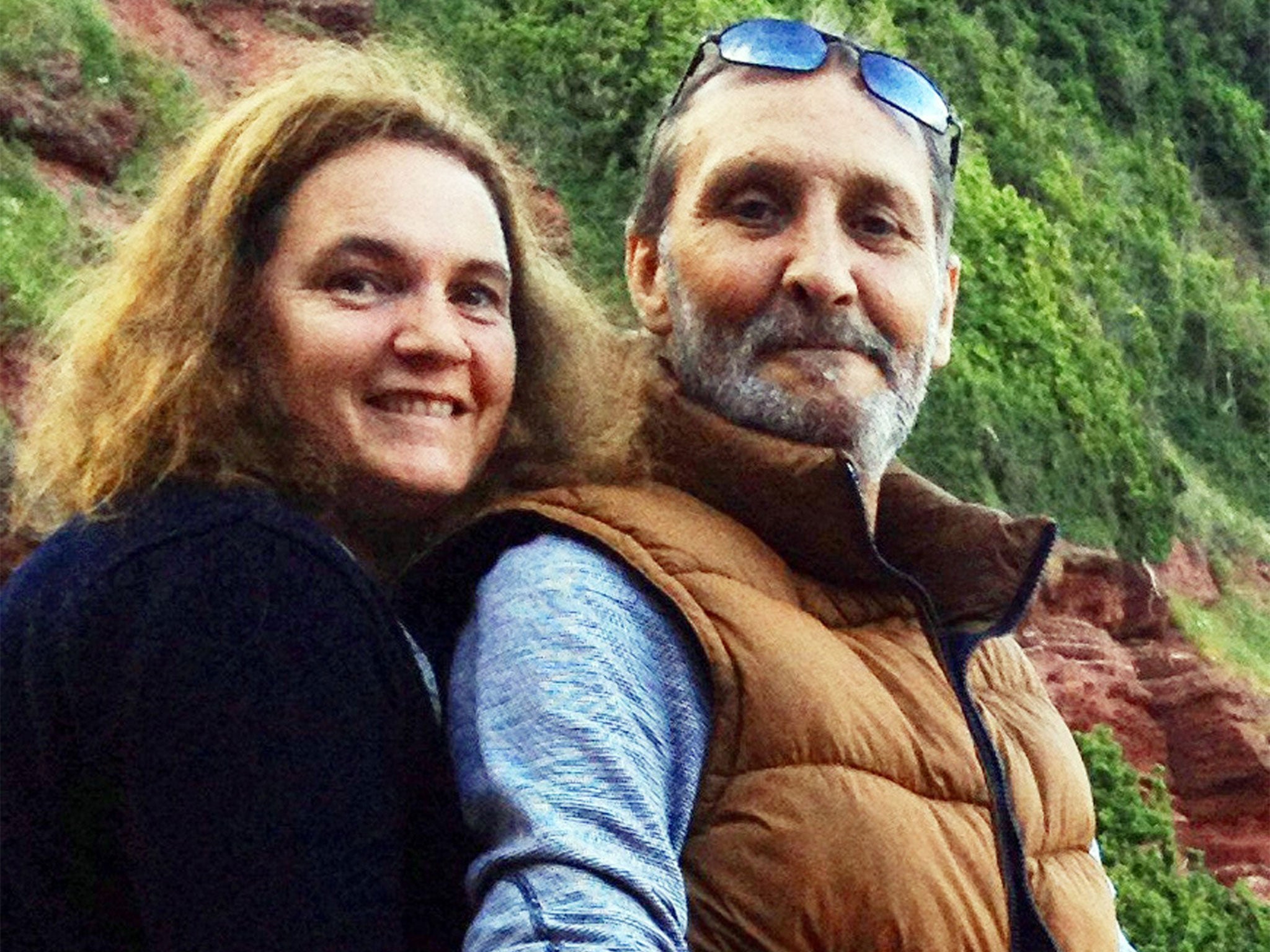Postscript: Ian Christie, liver transplant patient
'I kept hoping for a donor... I didn't want to leave my daughters without a father'

Your support helps us to tell the story
From reproductive rights to climate change to Big Tech, The Independent is on the ground when the story is developing. Whether it's investigating the financials of Elon Musk's pro-Trump PAC or producing our latest documentary, 'The A Word', which shines a light on the American women fighting for reproductive rights, we know how important it is to parse out the facts from the messaging.
At such a critical moment in US history, we need reporters on the ground. Your donation allows us to keep sending journalists to speak to both sides of the story.
The Independent is trusted by Americans across the entire political spectrum. And unlike many other quality news outlets, we choose not to lock Americans out of our reporting and analysis with paywalls. We believe quality journalism should be available to everyone, paid for by those who can afford it.
Your support makes all the difference.Ian Christie had always considered himself healthy. But when he attended a routine hospital appointment in May 2012 - Mr Christie had contracted hepatitis C from a blood transfusion in the 1960s - he was staggered to learn that he had developed cirrhosis of the liver and could be dead in less than a year.
“It sets you back on your heels,” admits Mr Christie, who at the time was the manager of a successful electrical company in Devon, where he lived with his wife Debra and their three daughters.
The 62-year-old deteriorated rapidly, losing five stone in as many months and becoming virtually bedridden while he waited for a donated liver to become available.
“I was always hopeful and positive, saying 'It'll be OK, we'll get one',” he recalls. “It's hard to do when you're feeling close to death.”
Then, on 19 February 2013 - his eldest daughter's birthday - came the phone call on which his life depended. An ambulance whisked Mr Christie to King's College Hospital in south London, where he was wheeled into theatre. It was only when he woke up after the operation that he discovered he had been involved in a landmark medical procedure, benefiting from a “revolutionary” device that could offer new hope to hundreds of transplant patients every year.
Donor livers are usually kept “on ice” and cooled to slow their metabolism - but many become damaged and unfit for transplantation as a result. Mr Christie had become the first person in the world to receive a “warm liver” transplant, whereby the organ is kept “alive” in a machine that mimics the human body. The OrganOx device, developed by scientists at Oxford University, took 15 years to make.
“I was taken out to the ward after one day in intensive care,” says Mr Christie. “It was at that point they told me they had used this OrganOx machine in a world-first operation. All these doctors and professors from Oxford University came into my room, looking pleased as punch.
"They told me the surgeon was amazed the liver was immediately functioning - it can usually take up to 28 days. I was kept in hospital for 10 days to recover - and four days of that was waiting for the TV crews to come in! I was up and walking about the day after the operation,“ he says. For the first several months following the procedure Mr Christie felt ”great“.
"I had a massive wound to heal but I felt on top of the world, a euphoria about being alive without death hanging over me."
But after six months he began to feel unwell. In December 2013, Mr Christie was re-admitted to hospital after doctors detected "blockages" in some of the ducts the liver feeds. He had further surgery but, he says, "from that point I never really felt as fit again."
He adds: "I've had to come to terms with the fact I'm never going to be as I was before."
Mr Christie was forced to leave his job and is now registered as disabled. ”We do live on benefits now. We aren't well off - we have struggled very badly,“ he says.
While he was sick, he says, he and his wife were targeted by an unscrupulous accountancy firm which swindled them out of their life savings, adding to the burden.
Despite the ordeal, Mr Christie, now 65, is ”delighted“ to be alive and with his family - Debra, 50, and daughters Charlotte, 11, Amelia, 18, and Sophia, 27 - who he says kept him going.
"I didn't want to leave them without a father and thankfully I didn't have to. The people in the NHS who achieved all this for me are absolutely wonderful," he says.
"As soon as I was recovered enough to be back home nothing seemed important anymore - all the little things you stress about.
"It completely changes your outlook on everything. You're alive and enjoying the sunshine.
"It's been a bit of a rollercoaster but I'm still here, still smiling."
'Postscript' will run in the i paper and online every Saturday. If you would like us to return to someone who was in the news, please write to i@independent.co.uk
Join our commenting forum
Join thought-provoking conversations, follow other Independent readers and see their replies
Comments